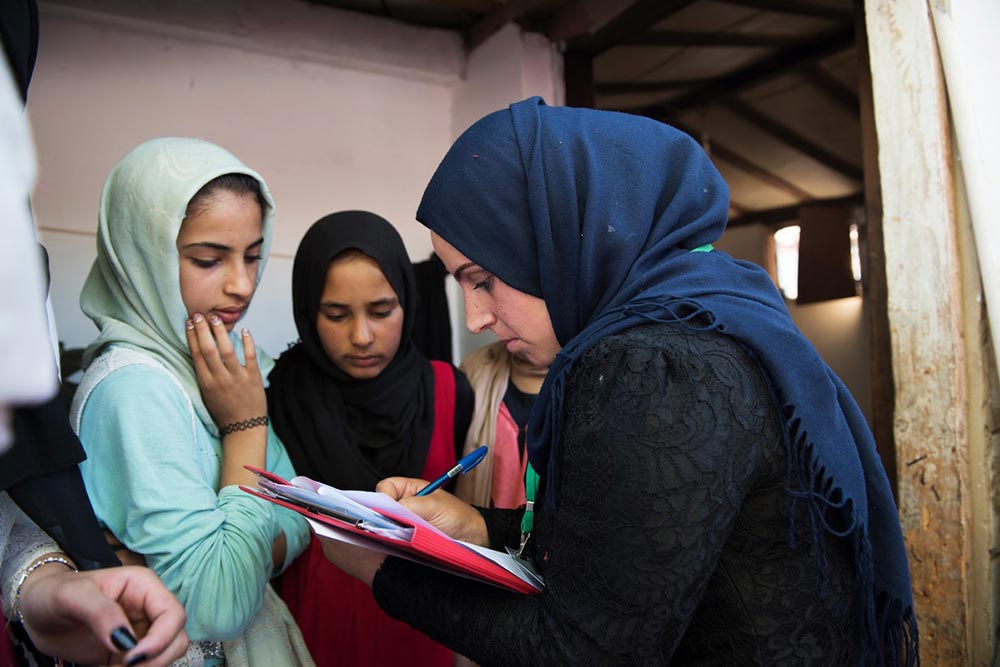Country Profiles
Ireland
Context
A general election took place in Ireland in February 2020. The results were inconclusive and government formation was challenging as a result. In a significant development, the two major centre-right parties agreed to enter government together for the first time and a coalition was formed in June 2020, supported by the Green Party.

The Programme for Government states that Ireland will continue to champion multilateralism and work towards the Sustainable Development Goals (SDGs). The document further highlights the potential impacts of the COVID-19 pandemic on the Global South and asserts that Ireland must “reinforce our ambition” in the area of ODA as a result.
The previous Minister for Foreign Affairs and Trade remained in post and a new Minister for Overseas Development Aid was appointed in July 2020.
The terms of the coalition deal include a rotation of the role of An Taoiseach (Prime Minister) between the two centre-right parties. This rotation took place in December 2022 with a Cabinet reshuffle, which resulted in new appointments to the Foreign Affairs and ODA portfolios.
Policies & funding
In 2018, the Tánaiste (deputy prime minister) and Minister for Foreign Affairs and Trade committed to bring the annual core contribution to UNFPA up to 3.5 million Euros. Core funding was maintained at this level across 2019-21. At the 2022 State of World Population (SWOP) launch, the Irish government announced a 500 million Euros increase in funding, bringing its core contribution to 4 million Euros.
In 2021, Ireland spent 28 million Euros on sexual and reproductive health and family planning (SRH/FP), representing an overall trend of increase on previous years – it should be noted that this is mostly a result of more comprehensive reporting methods by Irish Aid. The country disbursed funds through the multilateral system, government-to-government cooperation, and specific organisations. In addition to these disbursements, the country allocated €45.6 million to the broader SRHR agenda, including support to HIV/AIDS and integrated responses to sexual and gender-based violence. Ireland continues to take an inconsistent approach to multilateral project funding: while some projects do receive year-on-year funding, others – such as UNFPA Supplies – only receive allocations intermittently, with 2017 marking the last contribution.
Ireland has committed 1.2 billion Euros to ODA for 2023, an increase of 177 million Euros on the previous year and the eighth consecutive year that ODA funding has been increased. There is no specific commitment to SRH/FP in the ODA budget: the spend for SRH/FP is included within the overall budget for health.
The Irish government launched a new international development policy in 2019, entitled ‘A Better World’, which strongly signals that Ireland will take a proactive, rights-based approach to SRH and work towards the fulfilment of sexual and reproductive rights. In a significant departure from previous policies, SRHR is mainstreamed throughout the document, which includes a commitment to a new, as yet unpublished, initiative on SRHR, the incorporation of SRHR into humanitarian programming and a commitment to Universal Health Coverage (UHC). The policy states: “Access to health services, including access to comprehensive sexual and reproductive health services, is fundamental for realising SRHR and transforming women’s health outcomes.”

Ireland’s third National Action Plan on Women, Peace and Security (WPS) was also published in 2019 and provides further evidence of the mainstreaming of SRHR across government policy. The document references the SRHR commitments in ‘A Better World’ and commits Ireland to intensifying and advancing work on SRHR in humanitarian settings and to continue supporting women from conflict-affected countries living in Ireland through access to FGM treatment and sexual and reproductive health outreach.
Internationally vocal
Successive ministers for development and foreign affairs have made political commitments to ICPD in parliamentary speeches and debates. This commitment has been reaffirmed at the Commission on the Status of Women and the Commission on Population and Development. Ireland also played a strong role within the Open Working Group on the Sustainable Development Goals to push for SRHR.

In September 2018, Ireland endorsed a resolution on maternal mortality in humanitarian settings at the UN Human Rights Council which recognised that SRHR are integral to the realisation of the right to health and that comprehensive SRH services must be available, accessible, acceptable and of quality. In September 2019, the Minister for Health told the High-Level Meeting on UHC: “Reproductive healthcare is a basic human right and should never be a matter of political discretion” and supported a joint statement on SRHR in UHC. Ireland sent high-level political representation to the Nairobi Summit on ICPD25 where the government again reiterated its commitment to the realisation of SRHR. The only financial commitment made by Ireland at the Summit was in relation to ODA. In May 2020, Ireland joined 58 other countries in signing a joint press statement entitled, ‘Protecting Sexual and Reproductive Health and Rights and Promoting Gender-responsiveness in the COVID-19 crisis’. At the Generation Equality Forum in July 2021 Ireland reaffirmed its commitment to advancing women’s and girls’ access to comprehensive SRHR as an essential aspect of achieving gender equality.

